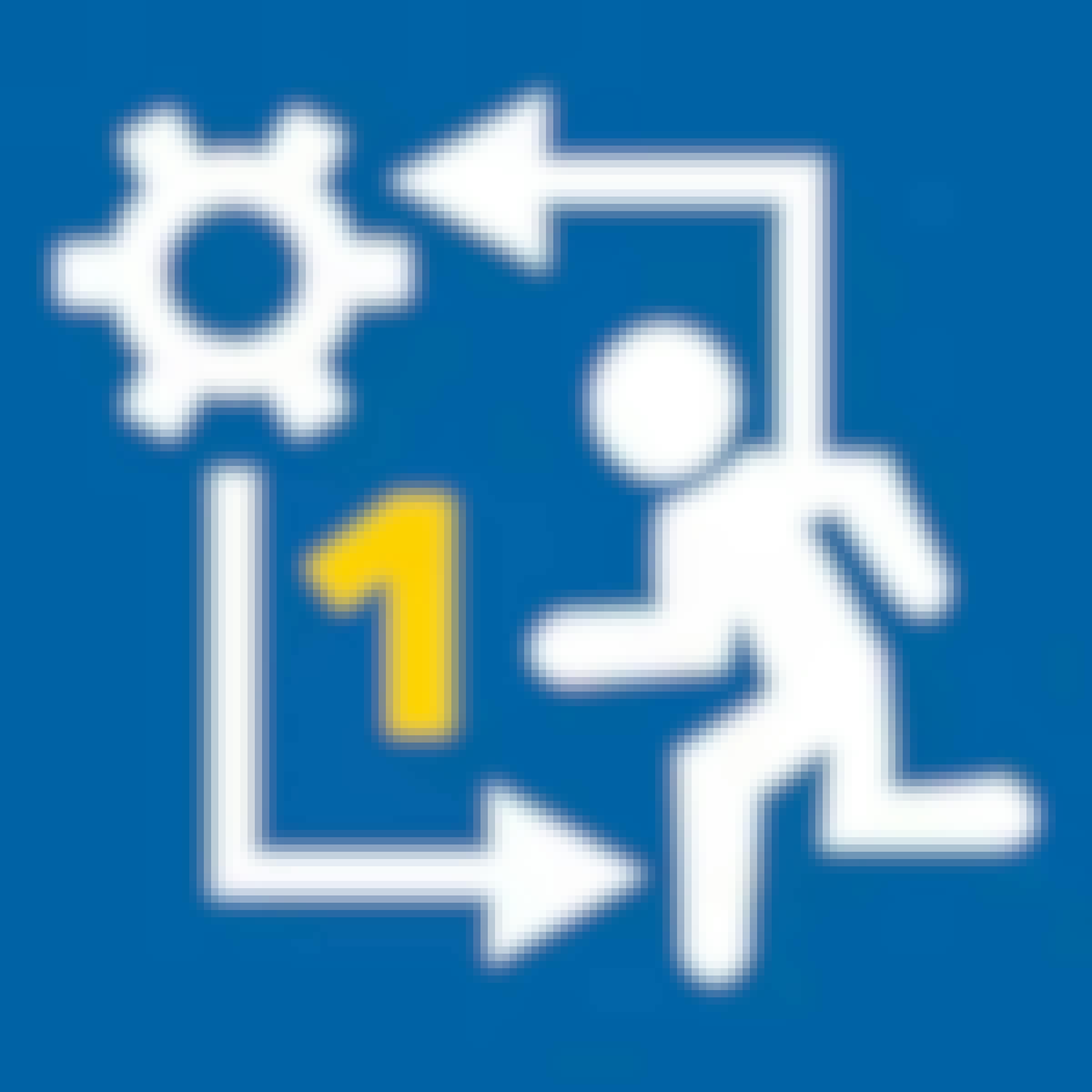- Browse
- Objective C
Results for "objective c"
 Status: PreviewPreviewU
Status: PreviewPreviewUUniversity of Michigan
Skills you'll gain: Hypertext Markup Language (HTML), Web Content Accessibility Guidelines, Web Design, Web Design and Development, Cascading Style Sheets (CSS), Semantic Web, Usability, Javascript, Responsive Web Design, Web Content
Mixed · Course · 1 - 4 Weeks
 Status: Free TrialFree TrialU
Status: Free TrialFree TrialUUniversity of Maryland, College Park
Skills you'll gain: Executive Presence, Persuasive Communication, Project Risk Management, Stakeholder Management, Non-Verbal Communication, Influencing, Risk Management, Professional Development, Stakeholder Communications, Program Management, Leadership, Communication, Project Management, Emotional Intelligence, Public Speaking, Team Management, Presentations, Team Building, Strategic Communication, Virtual Teams
4.9·Rating, 4.9 out of 5 stars9 reviewsBeginner · Course · 1 - 3 Months
 Status: Free TrialFree Trial
Status: Free TrialFree TrialSkills you'll gain: Project Documentation, Agile Methodology, Agile Project Management, Project Management, Project Management Life Cycle, Project Planning, Project Management Institute (PMI) Methodology, Sprint Planning, Backlogs, Stakeholder Management, Team Oriented, Communication
5·Rating, 5 out of 5 stars6 reviewsBeginner · Course · 1 - 4 Weeks
 Status: NewNewStatus: Free TrialFree TrialP
Status: NewNewStatus: Free TrialFree TrialPPearson
Skills you'll gain: Scope Management, Project Schedules, Project Scoping, Scheduling, Requirements Management, Resource Allocation, Project Planning, Sprint Planning, Project Management, Work Breakdown Structure, Agile Methodology, Project Estimation, Agile Project Management, Change Control, Dependency Analysis
Beginner · Course · 1 - 4 Weeks
 Status: PreviewPreviewU
Status: PreviewPreviewUUniversity of California, Santa Cruz
Skills you'll gain: Business Communication, Entrepreneurship, Social Media Marketing, Search Engine Optimization, Web Design and Development, Marketing, Workflow Management, Business Planning, E-Commerce, Project Management, Business Strategy, Business Process, Branding, Customer Relationship Management
4·Rating, 4 out of 5 stars8 reviewsBeginner · Course · 1 - 4 Weeks
 Status: Free TrialFree TrialB
Status: Free TrialFree TrialBBanco Interamericano de Desarrollo
Skills you'll gain: Sustainable Development, Sustainable Design, Sustainability Reporting, Economic Development, Environmental Social And Corporate Governance (ESG), Construction, Project Management, Environment, Climate Change Mitigation, Private Equity
4.9·Rating, 4.9 out of 5 stars9 reviewsBeginner · Course · 1 - 4 Weeks
 Status: PreviewPreviewU
Status: PreviewPreviewUUniversity of Leeds
Skills you'll gain: Resource Allocation, Operations Research, Production Planning, Graph Theory, Data-Driven Decision-Making, Decision Making, Mathematical Modeling, Process Optimization, Network Planning And Design, Complex Problem Solving, Computational Logic, Algorithms, Linear Algebra, Cryptography
4.8·Rating, 4.8 out of 5 stars15 reviewsBeginner · Course · 1 - 4 Weeks
 Status: Free TrialFree TrialU
Status: Free TrialFree TrialUUniversity of California, Irvine
Skills you'll gain: Project Implementation, Earned Value Management, Project Management, Resource Management, Project Controls, Project Closure, Staff Management, Change Control, Change Requests, Workflow Management, Change Management, Stakeholder Management, Risk Management, Performance Measurement
Beginner · Course · 1 - 3 Months

Skills you'll gain: Microsoft Excel, Spreadsheet Software, Excel Formulas, Project Management, Project Coordination, Organizational Skills, Productivity Software, Collaborative Software, Project Planning, Data Validation, Data Sharing
4.9·Rating, 4.9 out of 5 stars44 reviewsBeginner · Guided Project · Less Than 2 Hours
 Status: NewNewStatus: Free TrialFree Trial
Status: NewNewStatus: Free TrialFree TrialSkills you'll gain: Cost Estimation, Project Scoping, Work Breakdown Structure, Cost Management, Project Planning, Project Schedules, Project Controls, Scope Management, Estimation, Earned Value Management, Scheduling, Project Management, Change Control, Variance Analysis, Dependency Analysis, Network Analysis
Beginner · Course · 1 - 4 Weeks

Skills you'll gain: Team Management, Team Performance Management, Organizational Skills, Collaborative Software, Telecommuting, Time Management, Virtual Teams, Project Management, Payroll Processing, Management Reporting, Billing, Leadership
4.9·Rating, 4.9 out of 5 stars14 reviewsIntermediate · Guided Project · Less Than 2 Hours
 Status: Free TrialFree TrialU
Status: Free TrialFree TrialUUniversity of Maryland, College Park
Skills you'll gain: Conflict Management, Team Motivation, Team Leadership, Project Risk Management, Stakeholder Engagement, Risk Management, Negotiation, Continuous Improvement Process, Cross-Functional Collaboration, Agile Project Management, Stakeholder Analysis, Project Management, Systems Thinking, Governance, Complex Problem Solving
Beginner · Course · 1 - 3 Months
Searches related to objective c
In summary, here are 10 of our most popular objective c courses
- مقدمة عن لغة HTML5: University of Michigan
- Persuasion and Presence for Program and Project Managers: University of Maryland, College Park
- Introduction to PMP and Agile Methodologies: Packt
- PMP Certification: Unit 2: Pearson
- GetVirtual: How to Launch Your Online Business: University of California, Santa Cruz
- Sustainable Infrastructure on the Development Agenda: Banco Interamericano de Desarrollo
- Introduction to Technology-Assisted Decision-Making: University of Leeds
- Project Execution: University of California, Irvine
- Microsoft Excel إنشاء أداه تعقب لإدارة المشاريع باستخدام : Coursera
- Certified Associate in Project Management (CAPM)® Exam: Unit 4: Pearson










